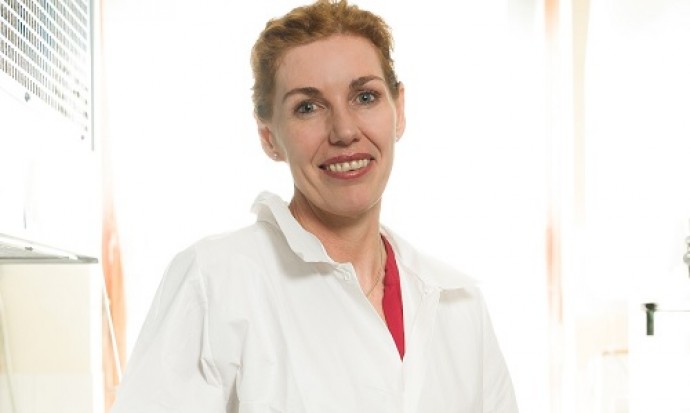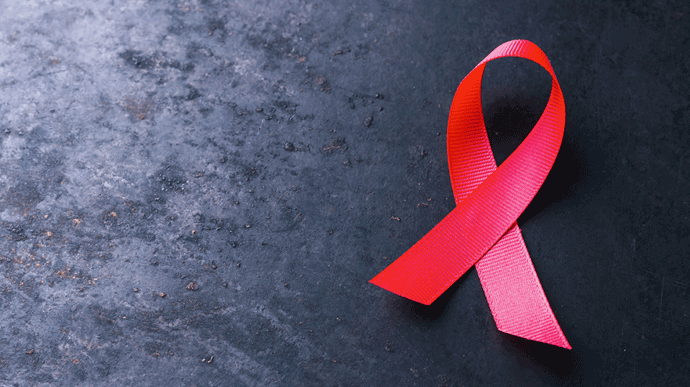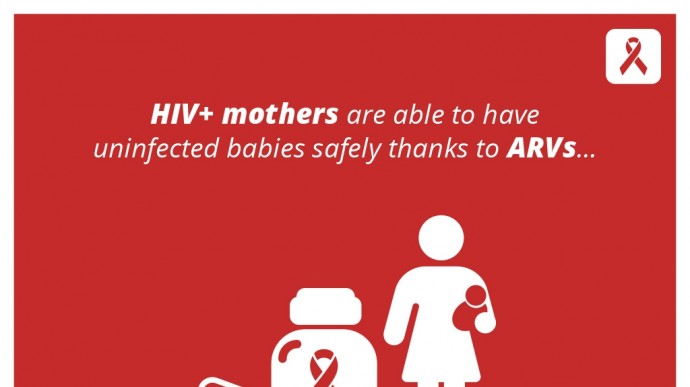Professor Theresa Rossouw describes herself as a clinician first and foremost, though she has been involved in research at the University of Pretoria (UP) since 2008. She says she conducts research so that the treatment and outcomes of patients can be improved.
Prof Rossouw leads the research of the HIV Immunopathology Laboratory, working on understanding the pathophysiology of HIV infection, especially with regard to ongoing systemic immune activation and inflammation. This has been associated with the development of long-term complications such as heart disease, neurocognitive dysfunction, renal disease, drug resistance; and the effect of in utero HIV exposure on the immunological, neurological and growth development of infants.
Approximately 7.9 million people in South Africa are infected with HIV. Prof Rossouw says that pregnant women are especially vulnerable; almost one-third of South African pregnant women are HIV-positive and can potentially pass the virus on to their infants during pregnancy, delivery or breastfeeding. Left untreated, up to 40% of infants will become infected through maternal transmission. The introduction of potent antiretroviral therapy (ART) during pregnancy and breastfeeding has greatly improved the health of HIV-positive mothers and significantly reduced the number of HIV-infected children.
However, studies show that children who have been exposed to HIV but who have not been infected potentially have significant additional health needs compared to their unexposed counterparts. They are more likely to develop infections, have metabolic derangements, and could have special learning and developmental needs that require additional care and educational support.
It is unclear whether this is caused by the mother’s HIV infection or associated immunological changes, or whether it is the treatment of HIV that shapes the development of these infants, specifically the maturation and function of the immune system, thus setting them on a path towards suboptimal growth and development as well as lifelong compromised immune function. With about 356 000 HIV-exposed infants born in South Africa every year, it is critical to better understand this phenomenon.
The Siyakhula study, which Prof Rossouw is involved in, is investigating the impact of infants’ exposure to HIV. The research group has been following 150 HIV-positive and 150 HIV-uninfected pregnant women through pregnancy up until their children are two years old. “We are evaluating how maternal HIV status and early life factors (breast milk and secondary infections) modify relationships between HIV exposure and key developmental outcomes, including infant growth, cognitive development and immune function.”
To this end, the group is monitoring the growth and neurodevelopment of the infants, taking matched maternal-child blood samples, placenta, breast milk and faecal samples to evaluate immunological function, the microbiome and metabolome.
The project brings together researchers from various departments at UP – Paediatrics, Obstetrics and Gynaecology, Medical Immunology, Family Medicine, and Human Nutrition – as well as two medical research council units: the Maternal and Infant Health Care Strategies Unit and the Health Systems Research Unit. The Departments of Consumer and Food Sciences (in the Faculty of Natural and Agricultural Sciences) are also playing a role in the project. In addition, researchers have partnered with the Centre for Human Metabolomics at North-West University where the metabolomics testing is performed.
“With this research, we hope to develop strategies to mitigate the risks to some of the most vulnerable members of society: HIV-exposed infants,” Prof Rossouw says.
A recent highlight for Prof Rossouw has been an observational cohort study of the natural progression of COVID-19 to investigate the effect of comorbidities, such as HIV, tuberculosis and diabetes, on disease severity and in-hospital survival. She says that at the start of the COVID-19 pandemic, HIV clinicians like herself were concerned that people living with HIV would be disproportionately affected by the disease. “We feared that hospitals would be overflowing due to a higher risk of infection with SARS-CoV-2 as well as an increased risk of dying in this population. This was a reasonable fear, since we know that immunocompromised individuals generally have a higher risk of infection, with many different pathogens as well as worse outcomes when infected.”
As such, the observational study was initiated by Dr Michael Boswell, then Senior Medical Officer at Steve Biko Academic Hospital and currently part-time UP lecturer based in the UK, together with colleagues from the Department of Internal Medicine at UP, most notably Prof Veronica Ueckermann (Head of the Intensive Care Unit), Dr Fareed Abdullah and Dr Wesley van Hougenhouck-Tulleken, as well as Dr Zelda van der Walt, Dr Talita de Villiers and Dr Trudie Kritzinger of the Tshwane District Hospital.
They recruited more than 500 participants for the study and found that people living with HIV do not have worse outcomes than the rest of the population. Prof Rossouw adds that they were quite surprised by the fact that only a small proportion of patients admitted to hospital with COVID-19 are living with HIV, suggesting that they perhaps do not have an increased risk of infection after all.
Simultaneously they started a study of acute COVID-19 to assess differences in the immune response to SARS-CoV-2 in people infected and not infected with HIV. Preliminary data suggests that people living with HIV seem to be protected from exaggerated immune responses, as seen during a “cytokine storm”, which is elicited during severe COVID-19. A cytokine storm occurs when the immune system overreacts to the presence of an infection; it is a catastrophic event where immune cells attack the very tissue it should be protecting and cause lung damage, blood clots and organ failure. “This finding is very surprising, as we know from our previous research that people living with HIV have higher background levels of inflammation in their bodies than those without infection.”
Prof Rossouw says they had postulated that the inflammation would increase the risk for a cytokine storm, but the opposite seems to be true. The hypothesis they are testing in their laboratory is that the immune cells have become “exhausted”.
In collaboration with Prof Penny Moore and colleagues from the National Institute for Communicable Diseases, they are looking at long-term immune responses to SARS-CoV-2 in people who have had COVID-19. This team of researchers established that SARS-CoV-2 501Y.V2 (B.1.351), the so-called “South African variant”, was resistant to treatment, with available antibodies partially resistant to treatment with convalescent plasma. These results indicated that people who had been infected with the original strain of SARS-CoV-2 could likely become re-infected with the new strain, and foreshadowed reduced efficacy of spike-based vaccines. These results were published in Nature Medicine. “We also recently published an article in The New England Journal of Medicine with the encouraging results that antibodies from people infected with the new variant still worked well against viruses from the first wave and, importantly, were able to neutralise the 501Y.V3 (P.1) variant first described in Brazil. The important conclusion from this study is that vaccines designed with the 501Y.V2 sequence may elicit better immune responses.”
Prof Rossouw says her academic role model is Prof Ronald Anderson (retired HOD of UP’s Immunology Department, who still works in a post-retirement UP position), who is “the epitome of a true academic”: fiercely intelligent and greatly accomplished, yet humble, generous with his time and always willing to assist and mentor. She adds that her research matters as it aims to improve the outcomes of patients with dreaded conditions. “I have special empathy for potentially vulnerable people, such as pregnant women and children living with HIV, and I strive to improve their well-being.”
She hopes to empower a new generation of researchers, especially female researchers, to embrace the incredible opportunities offered by science. Her advice to school learners and undergraduates is to never give up on their dreams.
Her interests are philosophy, literature, travel, wine, jogging and gardening.

 Story
Story
 Infographic
Infographic
 Infographic
Infographic
Get Social With Us
Download the UP Mobile App